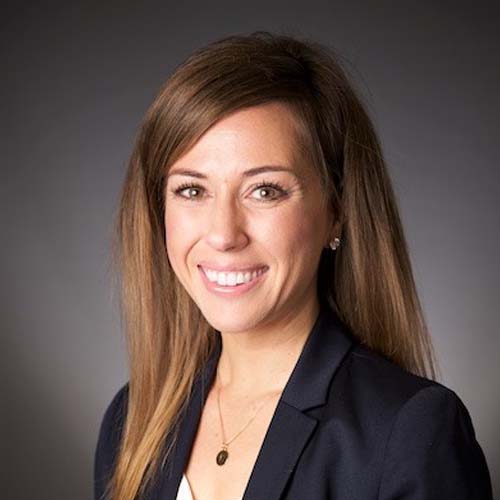
In December 2024, the U.S. Supreme Court heard oral argument in a case that will have vast implications for children around the country. In United States of America v. Skrmetti, the Court considered whether a Tennessee law that protects children from dangerous, life-altering “gender transition” drugs and surgeries is constitutional.
Let’s walk through where this lawsuit came from and what’s at stake in this important case.
Regulating medicine, protecting kids
At its core, this case was about the ability of states to govern the practice of medicine—a responsibility that states have exercised since our nation’s founding.
More specifically, Skrmetti is about protecting children from the harms of life-altering transition procedures, including the risk of sterility and stunted brain development. Tennessee’s law ensures that no more children will suffer from health-care providers putting ideology over science and lies over truth.
Models for treating children experiencing gender dysphoria have been a topic of intense conversation in recent years, both in Tennessee and across the globe. The medical clinic at Vanderbilt, the Volunteer State’s largest private university, began performing body-altering surgeries on children—permanently removing healthy body parts—in 2018. One doctor even referred to some of these harmful procedures as “huge money makers.”
Activists often misleadingly refer to these unnecessary surgeries as part of a process called the “gender-affirming” model. Other steps in the process typically include social transition and giving the child puberty-blocking drugs and cross-sex hormones that stop their natural development.
If that sounds like a dangerous model, that’s because it is. These experimental drugs and surgeries can cause catastrophic harm without meaningful benefits.
What does the science say?
Growing international evidence reveals that transition drugs and surgeries do not help children but instead inflict life-changing, often irreversible harm. Notably, European countries that once pushed for transition drugs and surgeries for children are now reversing course and proactively protecting children from these procedures as evidence of the devastating harms increases.
In Finland, for example, public health authorities have concluded that “[i]n light of available evidence, gender reassignment of minors is an experimental practice.” And in England, a thorough review by the country’s National Health Service (NHS) of all available studies concluded that all claimed benefit from injecting puberty blockers or cross-sex hormones into children and teens is “very low quality.” This led the NHS to stop prescribing puberty blockers and the U.K. government to impose an “emergency ban” on such prescriptions in England, Wales, and Scotland.
In short, European medical professionals—from individual practitioners to state health institutions—have rejected transition procedures and are instead advocating for children to have medical care rooted in biology. They are recognizing that children should have a chance to become comfortable with their own bodies without irreversibly harming them and making them lifelong patients.
And victims of this ideology are also sounding the alarm. More and more young people are saying that they wish someone had prevented their doctors from inflicting irreversible damage to their bodies and minds. Their tragic suffering—together with the growing international evidence—informed the decision of the Tennessee legislature to prohibit medical professionals from experimenting and inflicting this kind of harm on children. It’s why Tennessee joined the majority of states that ensure children suffering discomfort with their sex are given support and medical care rooted in biological reality.
What does Tennessee’s law say?
In light of the revelations regarding Vanderbilt’s gender clinic and the actions of European health authorities, a bipartisan group of Tennessee legislators came together to protect children in their state from dangerous and often irreversible transition drugs and surgeries.
The result was SB1, a law that protects children by prohibiting health-care providers from performing or administering these harmful procedures on children experiencing discomfort with their biological sex.
Contrary to what activists may say, SB1 does not classify people based on sex or “transgender status.” Rather, the law imposes use-based restrictions on certain prescriptions and operations. In other words, what is the medical purpose of the drug or surgery?
Distinctions like this are essential to sound medical practice. Consider morphine: using the narcotic to address a patient’s pain is not the same as using it to assist a patient’s suicide, or to satisfy a patient’s addiction. The same drug can be used to accomplish entirely different purposes.
The same is true of SB1: governing the use of drugs and operations is an essential part of the state’s duty to protect its citizens—especially its most vulnerable.
How did this case end up at the Supreme Court?
In 2023, the ACLU sued the state of Tennessee, and the Biden administration intervened, claiming that Tennessee’s law violated the U.S. Constitution. The district court initially blocked the law from taking effect, but the U.S. Court of Appeals for the 6th Circuit reversed, allowing the law to go into effect and finding that Tennessee was likely to succeed in its arguments that the law was constitutional. The Supreme Court agreed to review the 6th Circuit’s decision after the U.S. Department of Justice and the ACLU appealed the case.
Tennessee Attorney General Jonathan Skrmetti—the state’s chief law enforcement official—was the named defendant in the case. His office defended Tennessee’s law before the Supreme Court, and Alliance Defending Freedom filed an amicus brief in support of Tennessee’s law.
A major victory for children’s health and safety
In December 2024, the Supreme Court heard oral argument in United States of America v. Skrmetti. The Biden administration asked the Court to rely on guidelines that are not based on reliable science. But states have the right to protect children from harmful drugs and procedures.
Thankfully, the High Court ruled in June 2025 to uphold the 6th Circuit’s ruling and allow Tennessee to enforce its law protecting children. Writing for the majority, Chief Justice John Roberts said that Tennessee’s law is “plainly rationally related” to the state’s findings that administering puberty blockers and cross-sex hormones to minors with gender dysphoria “can lead to the minor becoming irreversibly sterile, having increased risk of disease and illness, or suffering from adverse and sometimes fatal psychological consequences.” He also said that the law is rationally related to “the State’s objective of protecting minors’ health and welfare.”
In addition to Tennessee, the Court’s decision will help protect similar laws in 26 states that safeguard children. Since 2021, when the first of these commonsense laws was enacted, ADF and our allies have been instrumental to their enactment and to their defense in the states where they have been challenged.
States have the right to protect children from harmful drugs and procedures, and ADF will continue our work to ensure that children can be kept safe from the harms of gender ideology.aw.






